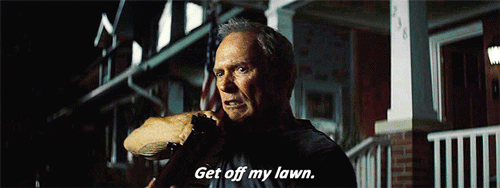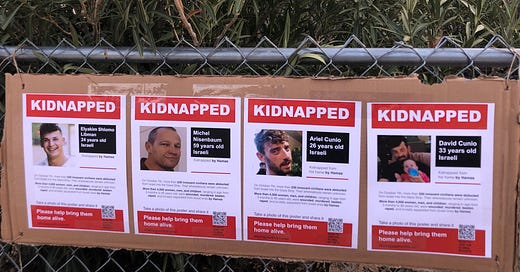
Why You Don't Need Twitter & Should Quit Today
Previously I made the moral case for leaving the social network. Today I lay out the numbers so you can see at a practical level why you should stop sacrificing your time to this vulture.
In this post from Monday I explained how I was so disgusted with Elon Musk’s childish defense of “Dilbert” cartoonist Scott Adams’ naked racism and the increase of hate speech on the website he bought for billions of dollars that I decided to quit the platform in protest:
This was not a difficult decision to make. I had been considering quitting Twitter for the last few months as Musk’s updates had produced irritating bugs and as I grew more and more weary of arguing with idiots about inanities. But also what made the decision easy was realizing that Twitter simply was not the best venue to pursue for promoting this publishing company, its team of writers whose books we’ll be publishing, and my future novels that I’m working on now.
Why is that? I noted in the previous post that Twitter was notoriously bad at converting linked tweets to clicks onto the website. Most people on Twitter aren’t interested in reading long-form content on websites. They also don’t read books. They’re interested in just tweeting away, scrolling from one 280-character post to another.
To understand this more deeply, let’s take a look at some of the core numbers which define what Twitter actually is.
This Pew study from May of last year lays out many of the most important figures:
Only 23% of American adults use Twitter.
More popular social networks include YouTube (81%), Facebook (69%) and Instagram (40%). Due to this fact, soon God of the Desert Books will launch YouTube and Facebook presences as well as further develop what we’re already doing on Instagram, which will become more important when we begin releasing our books.
Twitter is politically imbalanced. 32% of Democrats and Democrat-leaning independents use it while only 17% of Republicans and Republican-leaners use it.
This is a particularly vital piece of data to understand so I will put it in bold: the top 25% of users by tweet volume produce 97% of all tweets, while the bottom 75% of users produce just 3%. What this means is that Twitter is actually much smaller than the above 23% of Americans figure suggests. One might think, “Oh, on Twitter I can reach almost a fourth of the US population!” Try again. Actually, the vast majority of the dialogue and discussion on Twitter takes place among just 5.75% of the population.
69% of Twitter users get news off of the platform, however 31% of these individuals report that doing so has increased their stress level. In other words: Twitter is not a particularly pleasant platform to spend one’s time. I’ve come to learn this reality all too clearly in recent years.
Here is a study from Omnivore with more numbers for understanding this beast of a bird:
70.4% of users are male.
Worldwide there are 217 million daily users.
In the US of the 76.3 million total users, only 38 million are daily users (8.7% of the population).
The biggest chunk of Twitter’s audience is 25-34 years old, or 38.5%. In other words: millennials.
44% of Twitter accounts have never tweeted.
Now here’s the real kicker study:
Twitter generates 1.5 percent of traffic for typical news organizations.
Twitter falls behind Facebook, Google, and even Yahoo as sources of traffic.
This seems to align with what I’ve seen on previous websites I’ve managed and on what I’ve seen looking at our traffic here at GOTD. As I mentioned in the previous post I did about Twitter, the amount of traffic that Twitter has provided us altogether in the 8 months we’ve been publishing is less than what we receive on average in two days. So out of around 240 days, less than 2 days’ worth of that is what Twitter has sent. Not very impressive.
So to summarize: the vast majority of Twitter’s conversations are made up of 6% of the population, they’re largely Democrats or apolitical moderates, millennials in age, males in sex, a big chunk of them report that the platform causes them stress, and they are all very unlikely to click the link to visit another website.
So if it is your goal to sell books or build a business of some sort that doesn’t primarily target male millennial Democrats, Twitter really is not the venue for you. And I have no illusions about this publishing company we’re developing: books are primarily a product for those at least 35 and older. Those younger are largely more interested in fuckin’ video games and that idiotic Chinese spyware TikTok. To have the concentration to focus on a book that’s hundreds of pages long just isn’t something many young people are interested in or can do anymore. Smart phones and social media have now ruined multiple generations. Jeez, I’m only 39 but sounding like such an old man. Cue obligatory Clint Eastwood gif.
So it seems simple enough to me: if you want to reach older, more mature people who are interested in fun genre novels, deep literature, beautiful poetry, and compelling nonfiction titles, then stay the hell away from Twitter and TikTok. Focus instead on Facebook, YouTube, Instagram, and Substack - especially Substack. And I reserve the right to revise this advice as we continue to grow and experiment.
















Everything you said is correct. This is all a good reason not to use Twitter.
But I will add something. Twitter might have a actual tiny base of actual users comparative to say Facebook...however these users often times wield influence beyond Twitter.
Tweets get re-shared on other social media platforms constantly. They also get turned into click bait articles.
Donald Trump is a perfect example of someone who used Twitter and tweeting to reach a wider audience on social media. In fact the average Trump voters does not look like the demographics of your average Twitter user...at all. Instead his tweets were shared on Facebook constantly where I would argue Trump's viability as an actual serious candidate really took off.
The tweets that are shared on Facebook wether they be from Trump or some other figure are often times short crass snappy statements that lack nuance.
Twitter feuds and drama get talked about on YouTube as well. It has an outsized influence did a not very regularly used platform. This makes it intensely hard to actually make a profit off the thing. Many people who don't even regularly use Twitter make a profit off of selling Twitter drama to more popular platforms.
I am sure that you are not looking to grow your own media platform using Twitter drama, therefore Twitter is useless to you.
As I said before overall it's just so clearly a bad thing in so many ways it's almost ridiculous.
It seems to have rotted Elon Musk's brain. As he clearly due to the platform feels no need to actually make a coherent point. He just wants to meme and stir the pot, and it seems like Twitter is good at that.